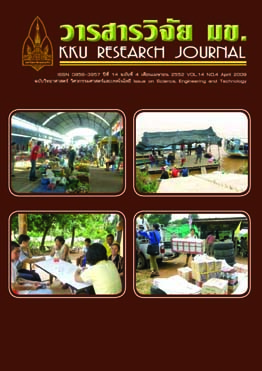The study of the state of teaching and learning science of sixth grade elementary science teachers in schools under the Bangkok Metropolitan Administration (Thai)
Main Article Content
Abstract
The teacher is the key factor in the success of teaching and learning, according to the National Education Act B.E. 2542 (1999). Understanding the state of science teaching and learning will help science educators engage teachers to use the child-centered approach. The purpose of this study was to explore the state of teaching and learning science. The subjects of this study were 32 sixth grade science teachers in schools under the Bangkok Metropolitan Administration who were selected by purposive sampling. The instrument for this study was a questionnaire consisting of demographic information, teachers' beliefs in science teaching, teaching procedures, science learning materials and resources, assessment of science learning, teachers' astronomy content knowledge, and professional development needs in teaching astronomy. The quantitative data was analyzed by frequency and percentage, while the qualitative data were evaluated through content analysis. The data revealed that the majority of teachers were female, between 30-40 years old, with a bachelor's degree in science as their highest degree, 3-5 years of science teaching experience, and taught science 17-19 hours per week. Most of the teachers' beliefs about teaching and learning science corresponded to the learning reform guidelines. The teachers taught science by lecture, and with hands-on activities, and they supplemented their teaching with publications and electronic media. They assessed students' learning by observing and correcting students' homework or notebooks. Although the majority of the teachers had misconceptions about seasons and moon phases, they indicated that they wanted to further develop themselves as science teachers.


